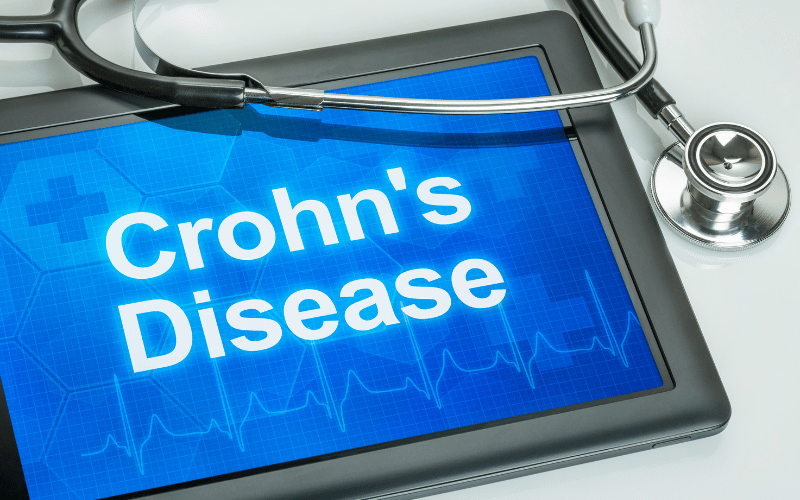Introduction

Crohn’s disease is more than just a medical term. It represents the daily challenges, unpredictable flare-ups, and the myriad of symptoms faced by those diagnosed with it. This inflammatory bowel disease has gained recognition not just for the discomfort it causes but also for the profound impact it has on an individual’s quality of life. Beyond the common digestive issues, it branches into various symptoms that can be easily misread or overlooked. The key to managing Crohn’s is early detection and understanding. Therefore, knowledge about its prominent symptoms is vital. Here, we’ll shed light on the ten most common symptoms associated with Crohn’s disease.
While many are familiar with typical stomach ailments – the occasional bouts of diarrhea or the cramps after a particularly rich meal – Crohn’s disease is an entirely different beast. It doesn’t just come and go; it lingers, often showing symptoms when least expected. And though it primarily targets the digestive system, its reach is far more extensive. From skin disorders to joint pains, its effects are body-wide, making it imperative for us to recognize its signs early.
It’s not just about spotting blood in the stool or navigating through abdominal pain. It’s about understanding that persistent fatigue might not always be due to a hectic lifestyle. It could be the body’s way of signaling a deeper problem. It’s about realizing that the occasional mouth ulcer isn’t always about spicy food, but could be an early sign of this inflammatory disease.
Having a clear understanding of these symptoms doesn’t just empower patients; it’s crucial for everyone. Early detection can lead to better management, potentially reducing the long-term impacts of this disease. Now, without further ado, let’s delve into these symptoms in detail.
Symptom 1: Persistent Diarrhea

Persistent diarrhea, a hallmark of Crohn’s, isn’t just a fleeting concern. It’s an ongoing battle that poses a series of disruptions in a person’s daily life. Frequent trips to the restroom can prove incredibly inconvenient, especially during work or social engagements. This urgency can be compounded by the presence of mucus or blood in the stool, raising alarm and concern.
Now, imagine planning your day around the nearest restroom or worrying about sudden flare-ups. That’s the reality for many Crohn’s sufferers. Unlike ordinary bouts of diarrhea caused by food poisoning or infections, this persistence underscores a chronic inflammation within the digestive tract.
Another layer to consider is the dehydration and nutrient loss. With the body expelling fluids rapidly, it becomes hard to maintain a balance, often leading to feelings of fatigue and dizziness. Over time, if untreated or not managed well, this can impact kidney function and other vital processes.
It’s not just the physical implications; the emotional and psychological toll is significant. From embarrassment to anxiety, the unpredictability of this symptom can be mentally taxing. Seeking timely medical intervention and understanding triggers can prove beneficial in managing this relentless symptom. (1)